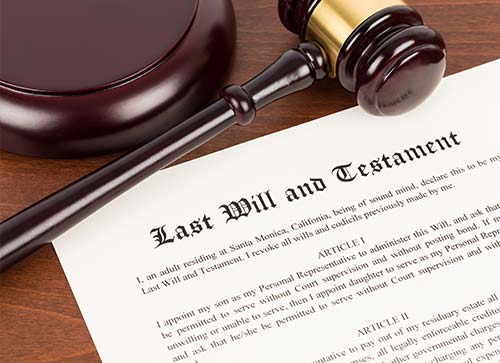Help Future You By Including A Trust In Your Estate Plan
In your 20s, you can feel like your whole life is ahead of you. But, as you’ve noticed, time can quickly pass you by as an adult. As you continue your journey and think about your future, it’s vital to consider where you want to be or what you want to have in the coming years.
An estate plan can be an effective vehicle for creating the future you want, especially when you include a trust in it.
So, what, exactly, is a trust? And why is setting one up now so important?
What Is A Trust?
A trust is an arrangement between you and a neutral third party to distribute any assets you put in the trust to your beneficiaries. Numerous types of trusts are available; you can choose whichever ones fit your circumstances best.
The types of assets you can put in a trust include:
- Your home
- Other real estate properties you own
- Stock portfolios
- Bond portfolios
- Businesses/business assets
Trusts can also be beneficial by giving you control over your most cherished assets. They also dictate how much of your assets your beneficiaries will get and how frequently they will receive them.
What Makes Trusts Different From Wills?
While both wills and trusts can determine the distribution of assets, what makes trusts different is that they can help you avoid probate and keep the information about your asset distributions private. In some cases, trusts can also help you decrease tax liability on the transfer of your assets.
Why You Need A Trust In Your 20s
While tomorrow can seem so far away, it’s never too early to prepare for and create the future you want today. Below are five reasons you need to establish a trust in your 20s.
1. To Reduce Future Estate Taxes
You work hard, and you deserve to keep what you’ve earned. If you have or plan to have a family and have assets like a home or business that you want to pass down to your kids, a trust can help you minimize the estate taxes you may have to pay out of your estate for the transfer.
2. To Maintain Control Over Your Assets
You may feel like your relationships with your family and other loved ones will remain constant. However, a lot can change over the decades. While you can’t control how the people in your life will grow and change, you can control who you want your assets to go to, and, if those assets include cash or investment accounts, how much money from those accounts you want going to beneficiaries and how frequently you want it going to them after you die. A trust can allow you to set those designations and, depending on your trust, make adjustments when necessary.
3. To Serve As A Safety Net For Your Spouse And Loved Ones
Suppose you suddenly become physically or mentally incapacitated in the future. In that case, a trust can provide a sound safety net for your family should your condition leave you unable to work or provide an income. Keeping certain assets in a trust allows you to financially provide for your spouse and leave your children with an inheritance, should you pass due to your condition.
4. To Keep Your Private Affairs Private
If you’re transferring cherished assets, like a home or family business, through a trust, that probably isn’t something you want the public to know about. You may also want to protect the people you’re transferring your assets to so that they don’t face scrutiny from others who have different opinions over asset distribution. With a trust, you can keep all this information private to reduce public scrutiny and minimize the risk of challenging your requests in court.
5. To Protect Sensitive Business Information
If you are a business owner, chances are that you have trade secrets that you don’t want competitors or the public to know about. While trusts can keep information about your asset transfers private, they can also help protect your business secrets during those transfers.
Learn More About How Creating A Trust Can Benefit You
Now that you have a foundational understanding of what trusts are, the benefits they offer and the value they can provide you. You may wonder which trust is right for you and how to create one. We can help with that at Enea, Scanlan & Sirignano, LLP.
Contact our attorneys at 914-269-2367 to schedule an initial consultation today. You can also reach out through our online contact form.

